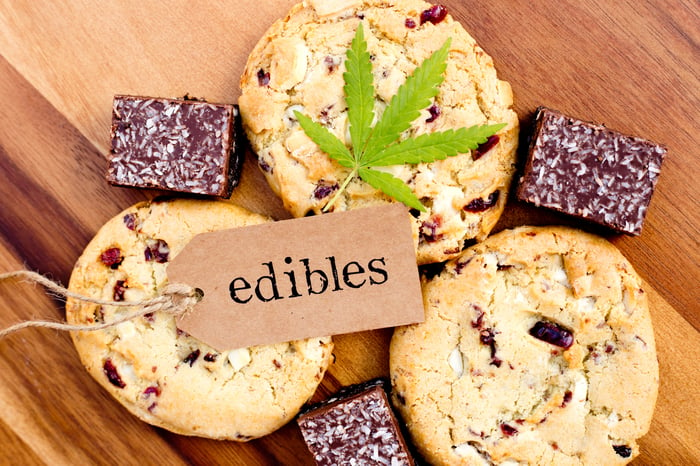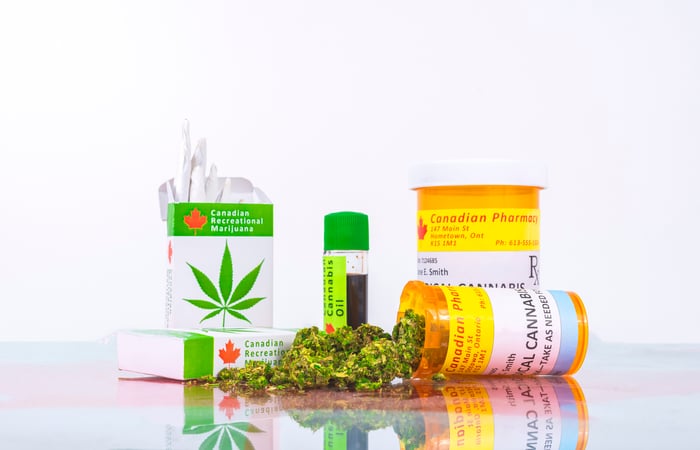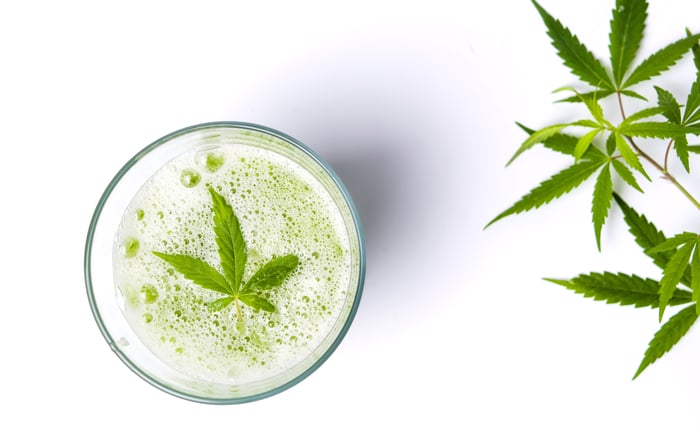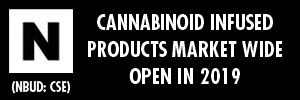SPONSOR: North Bud Farms Inc. (NBUD:CSE) Sustainable low cost, high quality cannabinoid production and procurement focusing on both bio-pharmaceutical development and Cannabinoid Infused Products. Click Here For More Information
Higher-margin consumption options are on the way — and so are added regulations from Health Canada.
- The marijuana industry blossomed before our eyes in 2018, with the cannabis movement taking steps toward legitimacy like never before.
Sean Williams – Jan 20, 2019 at 9:06AM
The marijuana industry blossomed before our eyes in 2018, with the cannabis movement taking steps toward legitimacy like never before.
In the United States, Food and Drug Administration approved its very first cannabis-derived drug, and President Trump signed the Farm Bill into law, legalizing hemp and hemp-based cannabidiol products. But of all events, none offered more validity to the long-term cannabis business model than the legalization of recreational marijuana in Canada this past October. Although this legalization will generate billions of dollars in added annual sales, it’s the legitimacy of weed now being legal that’s worth even more.

Image source: Getty Images.
The wait for alternative cannabis options lingers on in Canada
However, Canada’s legalization wasn’t as broad-based as you might think. Although dried cannabis flower, sublingual sprays, and cannabis oils were legalized, other popular forms of consumption were not. This included edibles, cannabis-infused beverages, extracts/concentrates, topicals, and vapes. This was likely done to expedite the approval of the Cannabis Act through Parliament, as well as allow the industry to get its bearings.
One of the bigger questions has been when the Canadian government would address alternative consumption options. Since dried cannabis flower has been commoditized in a handful of recreationally legal U.S. states, the expectation is that Canada will follow suit in the years to come. This puts alternative marijuana products into the spotlight, since they’re expected to have higher price points, higher margins, and be far less susceptible to pricing pressure, than dried flower.
New consumption options are coming, but there are caveats
Recently, Health Canada helped put some of those questions to rest by laying out its plan of action on alternative consumption options. According to a rough outline provided by the Canadian regulatory agency, and detailed by the National Post, edibles, infused beverages, topicals, and extracts should be legal by this fall, no later than Oct. 17, 2019. That’s exactly one year after adult-use pot became legal for sale in Canada. Of course, there are plenty of caveats to this product expansion.
For example, the draft provided by Health Canada calls for strict caps on the amount of tetrahydrocannabinol (THC) that these products can contain. THC is the psychoactive cannabinoid responsible for getting a user high. The agency suggests that no package of edibles would be permitted more than 10 milligrams of THC, with topicals and extracts limited to 1,000 milligrams of THC.

Image source: Getty Images.
Just as we’ve witnessed in the U.S., there would also be strict packaging regulations on edibles to make them less appealing to children. Packaging that resembled candy or other foods familiar with children wouldn’t be allowed, and neither would ingredient labeling that would attract kids, such as sweeteners. The packaging itself must also be tamper- and child-resistant, plain, and carry the standard health warning.
Edible, topical, and extract producers would also be barred from making any health benefit or nutrition claims on their packaging.
Interestingly, the one item left off the list is cannabis-infused alcoholic beverages. Although nonalcoholic infused beverages should be legal within the next nine months, those containing alcohol will have to wait a bit longer.
These companies are champing at the bit for the green flag to wave
With few exceptions, this draft from Health Canada was music to the ears of cannabis producers and ancillary players. Now they’re simply champing at the bit for these products to be legalized.
Last August, Molson Coors Brewing Co. (NYSE:TAP) announced a 57.5%-42.5% joint venture with Quebec-based HEXO that’ll see the duo work on developing and retailing a line of cannabis-infused beverages in Canada. Molson Coors has seen its beer market share decline in Canada over the past decade, and is hoping that the marijuana industry can reignite top-line growth with a line of non-alcoholic infused beverages. With Molson Coors’ expertise in marketing new products, and HEXO’s intricate knowledge of the cannabis industry, this duo is eager to diversify their portfolio of products.

Read More: https://www.fool.com/investing/2019/01/20/marijuana-edibles-and-infused-beverages-should-go.aspx
